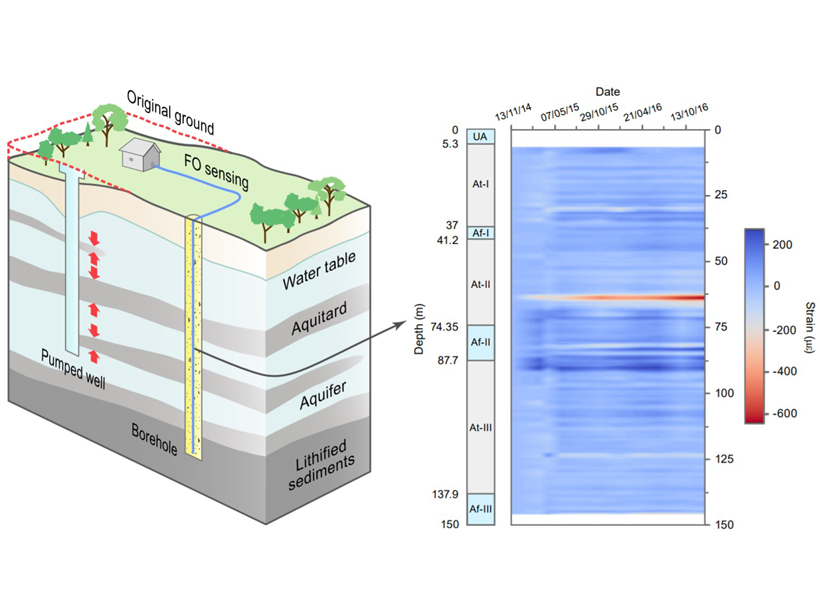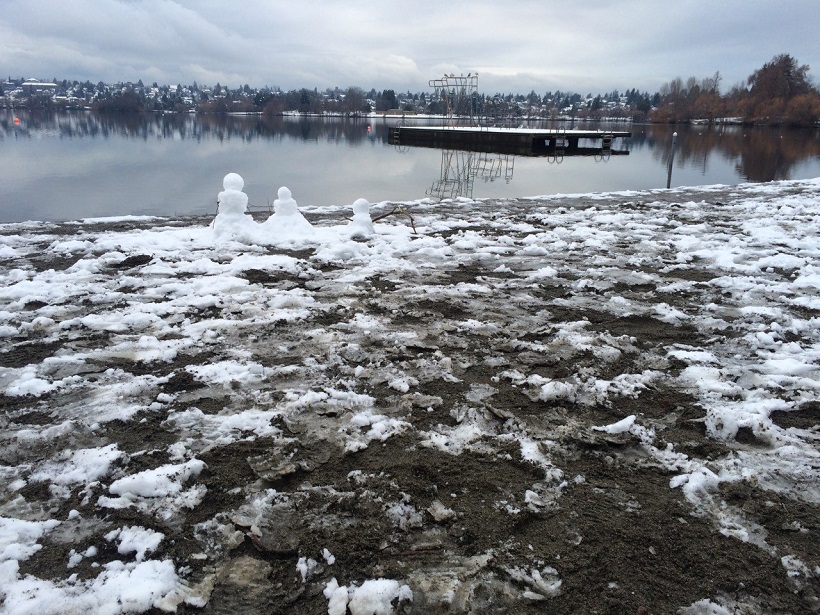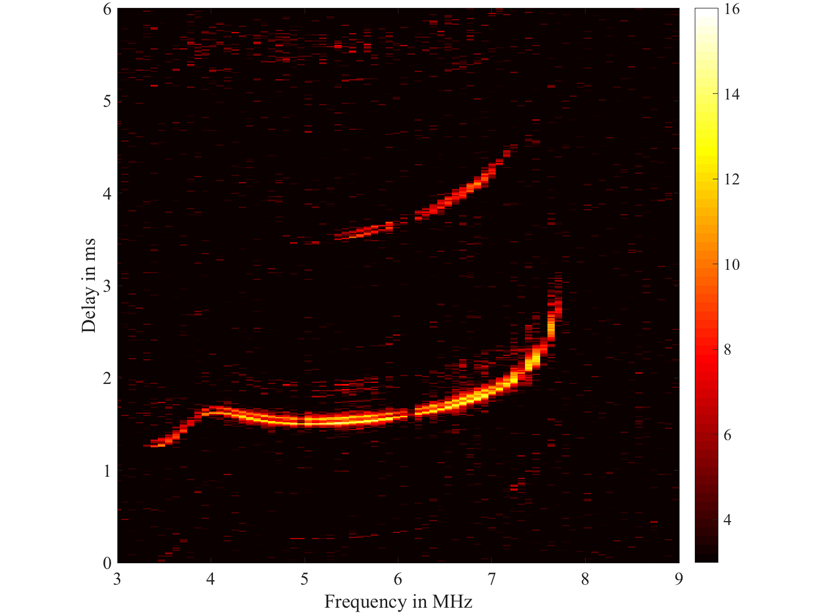Forrest S. Mozer was awarded the 2018 John Adam Fleming Medal at the AGU Fall Meeting Honors Ceremony, held on 12 December 2018 in Washington, D. C. The medal is for “original research and technical leadership in geomagnetism, atmospheric electricity, aeronomy, space physics, and/or related sciences.”
CC BY-NC-ND 2018
Fiber Optics Opens Window into Subsurface Deformation
The distributed deformation of buried materials is difficult to map, but a new approach is able to resolve vertical deformation over the length of a fiber optic cable.
Lessons Learned from Kīlauea Eruption’s Media Frenzy
The Kīlauea eruption earlier this year unleashed a media bonanza. Here are nine tips about how to debunk geohazard misinformation in real time from a scientist frequently tapped for expert comments.
Davis, Immerzeel, Santos, Turner, and Ummenhofer Receive 2018 James B. Macelwane Medals
Steven J. Davis, Walter Immerzeel, Isaac Santos, Drew Turner, and Caroline C. Ummenhofer were awarded the 2018 James B. Macelwane Medal at the AGU Fall Meeting Honors Ceremony on 12 December 2018 in Washington, D. C. The medal is for “significant contributions to the geophysical sciences by an outstanding early career scientist.”
Bridging the Gap Between Sustainability and Disaster Management
IGCS Summer School 2018 on Coastal and River Hazards & Management Strategies; Aachen, Germany, 14–25 July 2018
Daniel N. Baker Receives 2018 William Bowie Medal
Daniel N. Baker was awarded the 2018 William Bowie Medal at the AGU Fall Meeting Honors Ceremony, held on 12 December 2018 in Washington, D. C. The medal is for “outstanding contributions for fundamental geophysics and for unselfish cooperation in research.”
High Resolution Imaging of Ionosphere by Lightning
The three-dimensional distribution of electron density in the Earth’s ionosphere could be obtained using the broadband radiation of naturally occurring lightning discharges.
How Monsoons in Africa Drove Glacier Growth in Europe
A new study shows that low-latitude weather can affect distant glaciers.
Uranus and Neptune Should Be Top Priority, Says Report
Voyager 2 visited the ice giants in the 1980s, the only craft ever to do so. Planetary scientists argue that new missions to each planet would also benefit heliophysics and exoplanet research.







